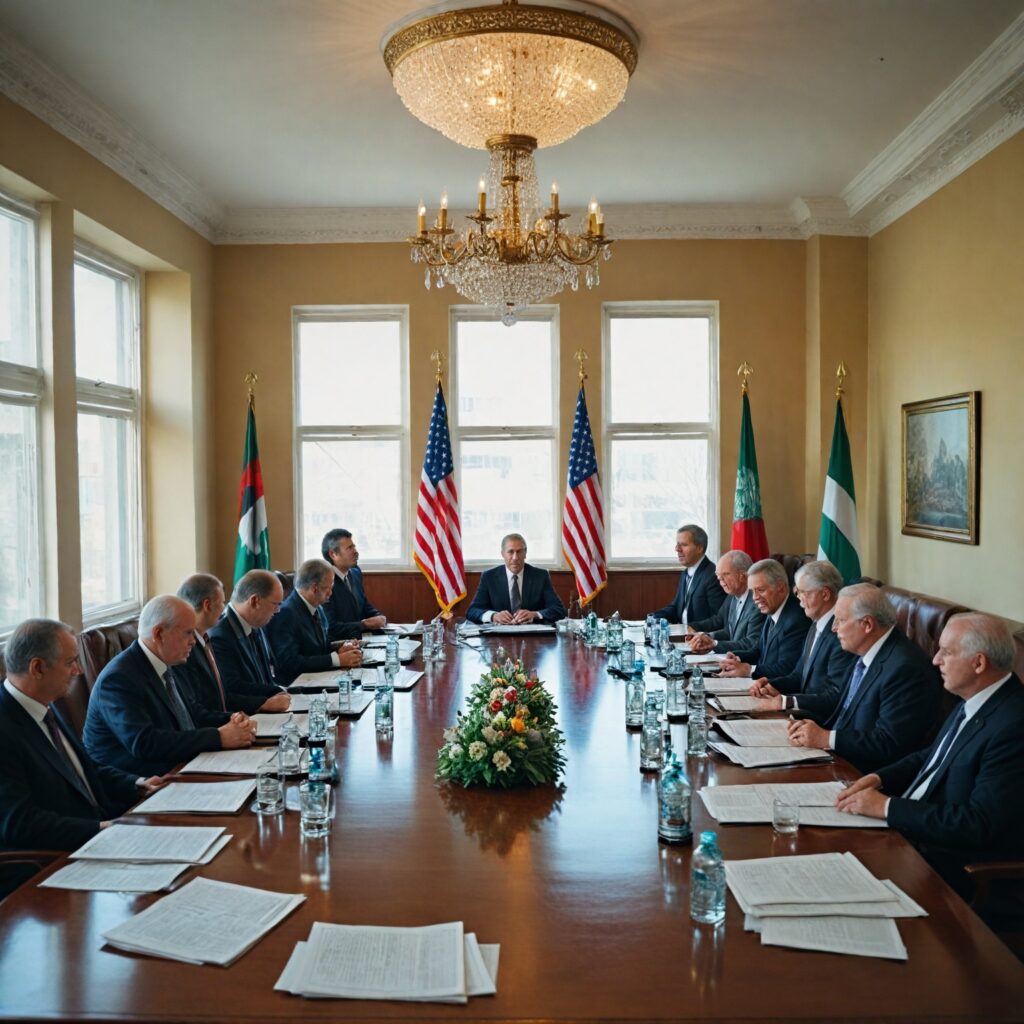
Highlights:
– Talks to extend Gaza ceasefire have hit an impasse
– Disagreements over key aspects between Israel, Hamas, and US
– Significant implications on the ceasefire and future negotiations
Impasse in Gaza Ceasefire Talks:
Talks to extend the Gaza ceasefire have encountered a stalemate, as reported by a Palestinian official to the BBC. Amid efforts to progress after the initial phase of temporary truce concluded on March 1st, negotiations have hit roadblocks. The US had proposed an extension until mid-April, involving an additional exchange of hostages between Hamas and Israel, but the parties seemed unable to find common ground on certain vital elements outlined by the US Middle East envoy.
Israel, which is yet to comment directly, through Prime Minister Benjamin Netanyahu’s office, expressed acceptance of the US proposition while Hamas opposed certain terms. The White House criticized Hamas for purportedly making unreasonable demands, stating that the group was in a misguided belief that time favored its cause, and warning of consequences if deadlines were disregarded.
Key Disagreements and Implications:
The ceasefire deal, initially agreed upon in January after a prolonged conflict, involved a staged process, where hostages were to be exchanged gradually for prisoners. However, both sides currently confront challenges in aligning on the number of hostages to be freed, withdrawal of Israeli forces from Gaza, and other crucial matters. Notably, Israel’s cessation of aid and essentials to Gaza in a bid to pressure Hamas has added strain to the already complex negotiations.
As the talks grapple with these intricate issues, the humanitarian situation in Gaza remains dire, with a vast majority of homes destroyed or damaged, and significant disruptions to essential services and supplies. The looming uncertainty surrounding the ceasefire extension and the failure to reach a consensus raise concerns about the overall peace prospects in the region and the well-being of the affected populations.
Future Outlook and Questions:
Looking ahead, the continued impasse in the ceasefire talks begs the question of alternative approaches or diplomatic interventions that could break the deadlock and pave the way for sustainable peace agreements. What steps can international bodies and mediators take to facilitate constructive dialogue and resolution of the ongoing conflicts in Gaza? How can the humanitarian crises in the region be addressed effectively amidst the political impasses and disagreements?
In light of the mounting challenges and diverging stances between the involved parties, what strategies could be employed to foster mutual understanding, trust, and cooperation, ultimately fostering a path towards lasting peace and stability in Gaza and the broader Middle East region? These critical questions warrant deeper reflection and concerted efforts from all stakeholders involved to navigate the complexities and uncertainties surrounding the ceasefire negotiations.
Editorial content by Peyton Hawthorne












